Creating an inclusive society for people with disabilities
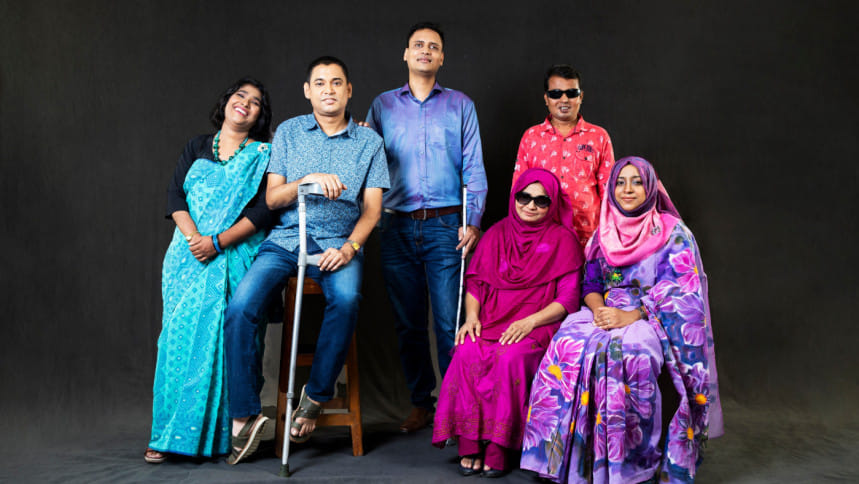
Every day's movement around the city is a gigantic task for Sharlin Akther, a person with a physical disability (cerebral palsy), where most of her right side is incapacitated and she has to balance herself in a special way to make her daily commute to the workplace. Every day she has to take a long queue at the bus station, only to find her reserved seats already taken by someone else – especially one without any distinctive medical condition. According to the Rights and Protection of Persons with Disabilities Act 2013, Section 32 (1) – a 5 per cent dedicated seat reservation is mandatory. This story is about Akther and many others who go through the same ordeal every day, without any expectations that things would change in the near future.
"Those seats are there for a reason, but the majority, don't get it. Every day, I have to give proof of my disability, to earn my right to the reserved seats. As if, life was not already troubling enough! I sometimes, do not blame these people, because disability is a taboo in our society and people at large are not habituated to the idea at all. We need to let the world know of our capabilities, that a person with disabilities can be equal to any person, only if provided with the right opportunities and tools."
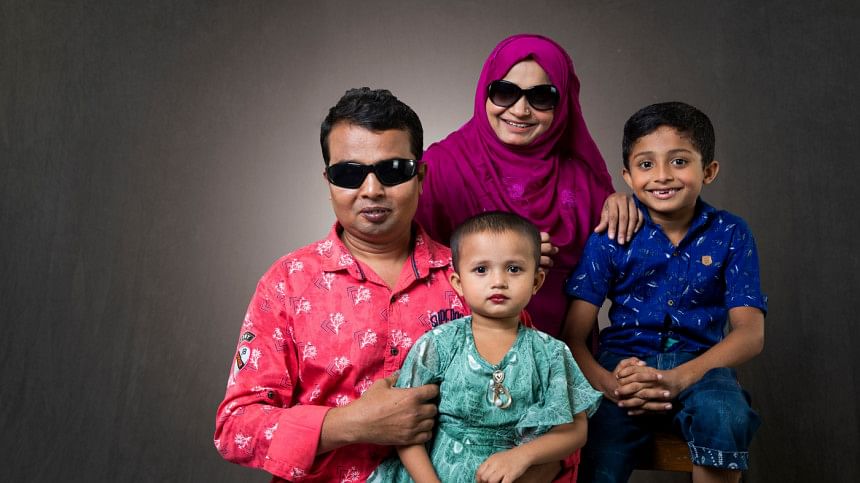
In order to understand the depth of the situation, we decided to sit down with a few other people with disabilities. Shahida Afroz Mim and her husband Md Rafikul Islam are visually impaired and are fighting against odds to find their rightful place in society.
"I have graduated in Political Science from Chittagong University," said Islam, "Despite all the hurdles I tried my best to complete my education. I am still jobless and searching for one to support my family. To say that disability is side-lined in the corporate world is an understatement," revealed Islam.
"As the world makes slow strides to become more inclusive, people with disabilities are still looked down upon. My personal experience would say so," said an upset father of two young children.
Shahida Afroz Mim, his wife joined in on our conversations. "I did my graduation from the Institute of Education & Research, DU, completed both B. Ed and M. Ed and yet my job prospect looks bleak".
Mim added, "The only thing I want to say is, people with disabilities form a significant portion of the entire population in our country and society simply cannot move forward until and unless people with disabilities are properly seen, heard and absorbed into the working force, with dignity."
We sat down next with Sharlin Akther, Programme Officer at the Bangladesh Business and Disability Network (BBDN). Working at a private organisation, which helps to connect, people with disabilities to the corporate world, Akther is well aware of the shortcomings and yet hopes for a better future for her community.
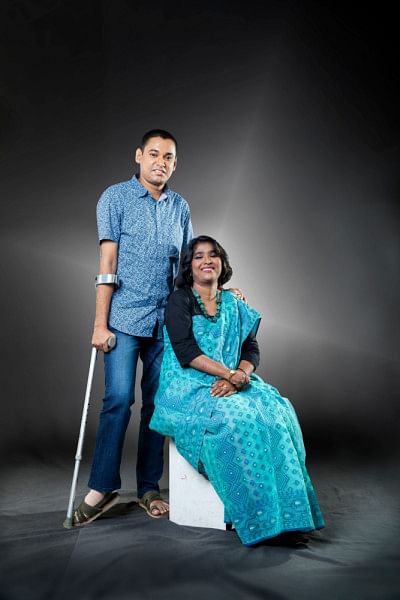
"Things are changing for the better every day, people are becoming aware and soon we hope there will be a world where people with any sort of disability is not looked down upon, but rather looked at with respect and a sense of equality," Akther said.
"I have survived cerebral palsy since I was only 6 months old. Maybe things would have been better had I not lived in Barguna, Patharghata — the Southernmost part of Bangladesh where treatment of the rare disease was limited, especially some twenty years ago. But as luck would have it, I had to fight the ailment and overcome any associated disability (at least mentally) for my own good and my family's," she added.
Akther, a happy-go-lucky person, can hide her pain from the world if she wants to.
"I don't want the world to treat me any different from a person with no disabilities. I am equal to them in every respect and perhaps even more because my disabilities are my armour and help me stand stronger than any other," said the resilient woman.
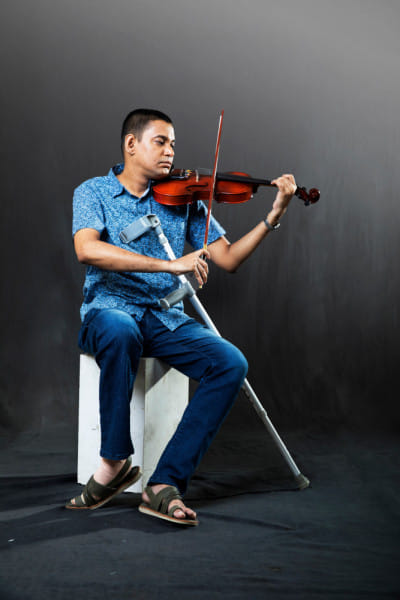
We spoke to Syed Galibul Saddam, Administrative Officer, Maternal and Child Health Division, International Centre for Diarrhoeal Disease Research, Bangladesh, ICDDRB, spouse to Akther, and a person with a physical disability.
"My disability occurred a lot later, especially after a medical procedure for varicose veins went horribly wrong. So, it was absolutely up to a grown adult to cope with the pain and also the new ways of my lifestyle. But I didn't let the incapacities get the better of me. I wear my pain as a warrior's badge and hope that I can move forward with my life like any other."
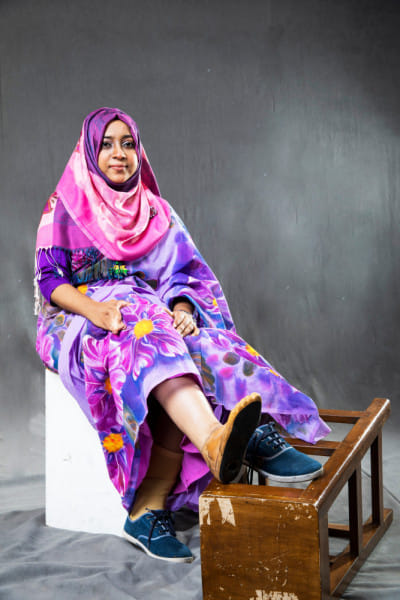
While we were getting two spectrums of thoughts, one of despair and one of resilience, Rubaiya Sultana, Programme Officer, BBDN, and a person with a physical disability drew a clearer picture for us. "What we need is empathy and respect in our lives. I could not be where I am today if it had not been for my family. They supported me through it all and not for a moment was I made to feel lesser than any other. And maybe that's my secret to being both physically and financially independent today."
Sultana also added that even though many companies were coming forward to absorb people with disabilities into the workforce, they were yet to be properly acclimatised.
"This is where BBDN steps in and I am proud to be working for an institution that hopes to make lives better for society as a whole," said Rubaiya Sultana.
Sharlin Akther added a few more points. "It's also on us to realise when and where we need training in order to improve on our working capacities. The world is moving at an extremely fast pace, we need to keep ourselves updated on every kind of knowledge and possibility. Once we take that one step forward, other steps are sure to follow."
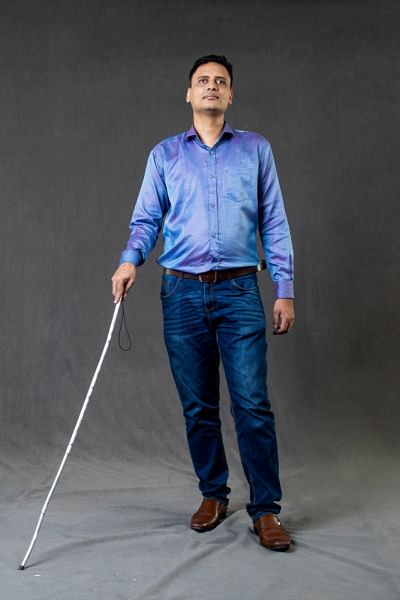
Mahfuzur Rahman, Program Officer at B-SCAN, agreed with Akhter's statement.
"I too became visually impaired at the age of 16-17 and had the hardest time adjusting to the transformation. But I realised from the beginning that there was no alternative to education and so I worked hard, as far as my mental and physical strength allowed me. And today, I am employed in a well-to-do organisation, earning my own pay and living my life on my own terms. I can't even imagine a dependent life. To all, from our community, I would like to say, don't fret because you can't, smile because you can, and maybe more because you are working ten times harder."

Today, our struggle is to create an inclusive environment, where all people are given an opportunity to contribute to the betterment of society and prosper. In order to achieve this, we need to give special attention to the needs of people with disabilities. We need to give importance to their special needs — maybe the start could be a special transport facility in and around the city, the introduction of adaptive clothing lines, or even the most basic, proper sanitation facility throughout the country. Even a small start can contribute in a major way.

Participants: Sharlin Akther, Syed Galibul Saddam, Siam & Fatema, Md Rafikul Islam, Shahida Afroz Mim, Rubaiya Sultana, Mahfuzur Rahman
Makeup: Sumon

 For all latest news, follow The Daily Star's Google News channel.
For all latest news, follow The Daily Star's Google News channel. 



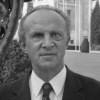
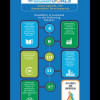



Comments